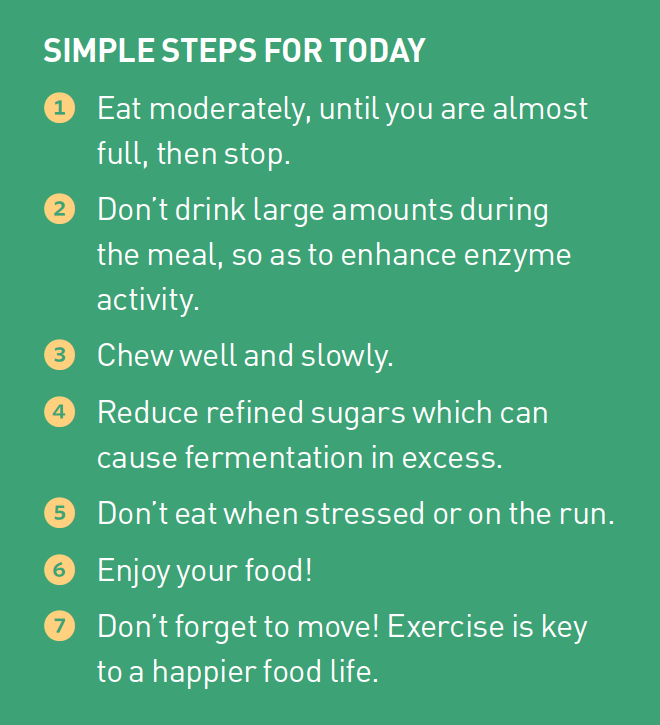This is taken from our spring 2015 issue. | Subscribe in time for the summer issue and three more.
Ditch the Diet Mindset

Tune in to instincts and energies.
By Colleen Kennedy.
Everyone seems to be an expert on food and fitness lately, and while this may have unleashed some great scientific information at our fingertips, it is not always the right information to apply to all circumstances. Between the cyber world, bookshelves, health food shops and pharmacies, how do we know what to eat anymore? Why are we not listening to our own instincts on what suits our bodies?
Biochemically, we are not all the same, so surely we all shouldn’t be eating the same diet. There is no such thing as the best diet for everyone. While the science of some diets can appeal to certain sectors of the population, a good start is to begin to understand your own constitution, your own unique biochemical makeup in an ever-changing environment. The art of being able to adapt to your environment and to use your foods to rebalance and support your essence dates back to the Chinese system of Traditional Chinese Medicine and the Indian system of Ayurvedic Medicine. Both of these cultures use a system of energetic and constitutional analysis. How our body responds to particular foods, activities, emotions and how we interact with other living organisms, all play a role in determining the best way to bring balance back to our lives, including what we eat.

The Chinese work from a system of Yin, Yang and the five elements. The Ayurvedic model is based on tridosha, or three types – Vata, Pitta and Kapha. Both systems understand how food and herbs can interact with our physical and psychological processes. Here is a brief look at the three Ayurvedic types, aspects that may indicate which one you predominantly are and some things to consider including or removing from your diet on seeing how you’re reacting to them.
1. Vata – Air
The Vata person is prone to neurological disorders, coldness and dryness. Foods and herbs that have a cold, dry and rough quality will aggravate Vata. Dry crackers, raw vegetables, dried fruits and beans should be limited. Vata needs warm, moist nourishing food, with a sweet energy. Complex carbohydrates and root vegetables have a sweet energy. Fruits like bananas, avocados and sweet fruits like peaches and berries are good, as are oils, nuts and seeds. Ginger, cinnamon, cumin and black pepper are all good spices to use for Vata.
2. Pitta – Fire
Pitta is prone to heat, inflammations, acidity and thirst. Foods that are warming, sour, spicy and salty are to be avoided in high Pitta conditions. Foods that are cooling, sweet, bitter and astringent are beneficial to balance Pitta. White meat and fish are better than red meat, as are sweet and bitter vegetables like leafy greens, cabbage, sprouts, cucumbers and asparagus. Herbs like coriander, mint, fennel and turmeric are beneficial.
3. Kapha – Earth
Kapha is prone to mucous; colds, congestion, oedema and arthritic disorders and can put on weight easily. So mucous forming foods like dairy, fats, cold foods and excessive sweet and salty food will aggravate Kapha. Warm, spicy, bitter, astringent foods that are dry in nature will benefit Kapha. Use rye and millet, all leafy green vegetables, stewed apples, white meat and all beans except kidney beans. Limit refined grains, white rice, wheat, beef, seafood, avocados, bananas, oranges, grapes and salt. Chilli, ginger and pepper are useful to disperse the dampness and congestion in Kapha. Since people are always a combination of these types, though usually one more predominantly, and may have other considerations and sensitivities to contend with, it’s a good idea to get a full consultation from a Naturopath, who can fine tune your plan to you and explain the types in more detail, helping to identify which you are. There is an art in adapting these energetic models with our functional medicine model and this is where the true uniqueness of treatment lies.
True nourishment is both how we receive our food and transform our food. So we could be eating the “best diet” but still not feeling great. Guilt about eating certain foods will do nothing to enhance the digestion of that food, and will probably make it worse. So try these simple approaches, tune in to your constitution and start connecting to the types of food that suit you best and visit a Naturopath, Herbalist or Nutritional Therapist for a full consultation. Simple approaches to a better food life begin in simple preparation and combinations.
Coleen Kennedy graduated in Herbal Medicine and Naturopathic Nutrition from CNM and lectures in Herbal Medicine at CNM Galway and Dublin. For information on CNM courses in Natural Therapies available nationwide. See naturopathy.ie They also have an open day coming up. Find out more >
This is taken from our spring 2015 issue. | Subscribe in time for the summer issue and three more.


